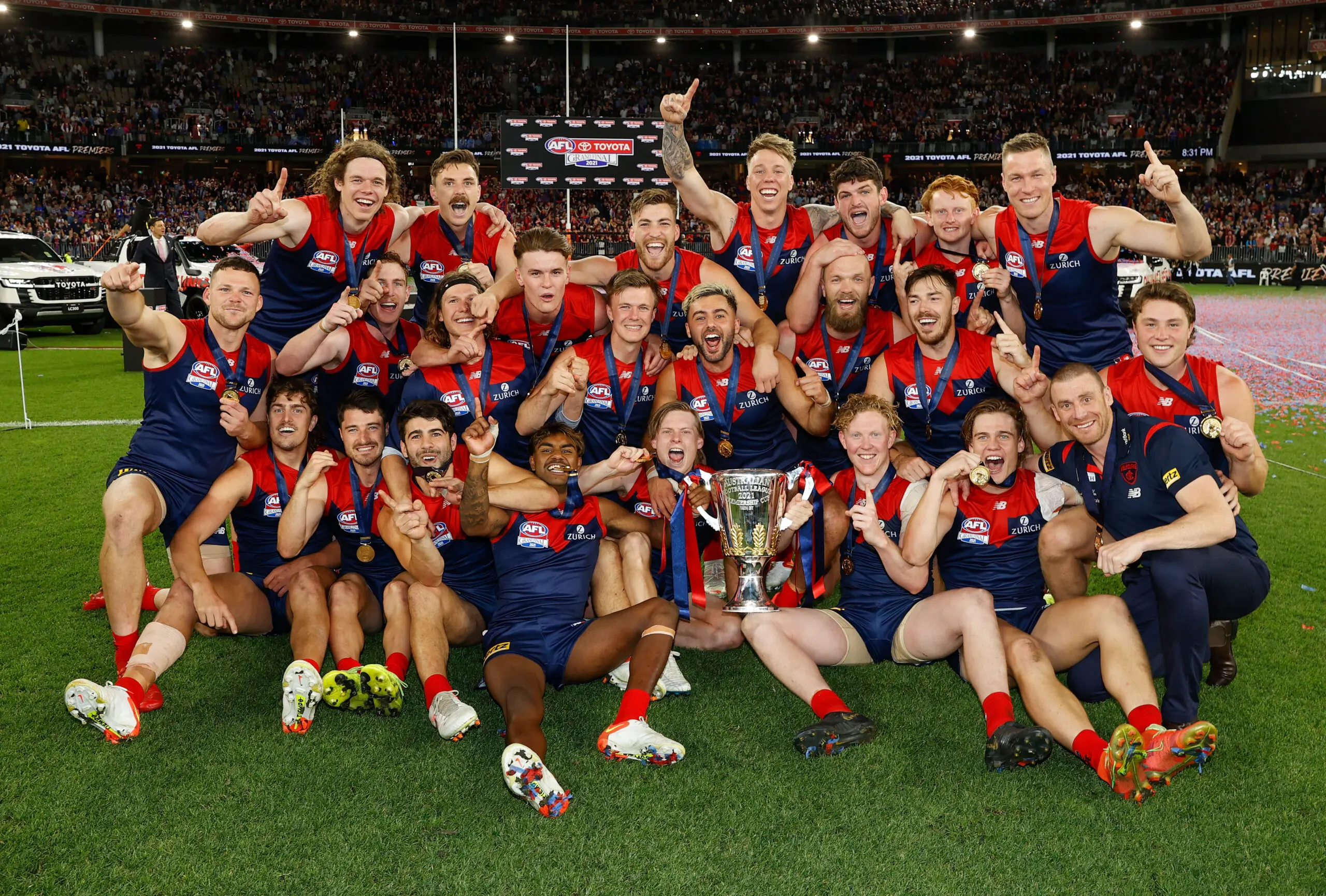It hasn't taken long has it?
The ink on the 2022 grand final result had barely been dry for 24 hours when the tiresome and renewed calls came for the AFL's biggest day to permanently become a night-time event, or at least a twilight fixture.
The rationale being used this time around? Apparently, Saturday's season crescendo didn't rate very well on the old idiot box.
You see, apparently only an average of 2.18 million viewers in capital cities (plus 95,000 viewers on streaming platforms) tuned in to footy's showpiece event, making it the least-watched AFL grand final in almost 30 years.
However, viewership peaked at 5.76 million. Are these numbers that surprising?
The game was over before quarter-time, Geelong got the jump on Sydney and promptly battered them into submission with six of the first seven goals before romping to an 81-point shellacking.
Not to mention the fact it was a beautiful day in Melbourne on Saturday, so why would the casuals remain glued to the TV screen when they could go out and enjoy the lovely spring weather from about 3pm?
Besides, many Melburnians would've taken the opportunity to watch the big game with big groups of mates or down at the pub after being forced to spend the previous two alone on the couch.
The pro-night/twilight grand final campaigners have cited the dramatic drop from last year's average national TV audience (4.11 million) and the 2020 average national audience (3.812 million), whose showpiece events were both staged at night time on the eastern seaboard.

But of course those two grand finals drew vastly bigger TV audiences because on both occasions, Victorians were locked down in their homes with nothing else to do. It took the meaning of ‘captive audience' to a whole new level.
This obsession with sacrificing the soul of the game just for the sake of chasing a few extra dollars that a few more eyeballs (belonging to theatre-going event watchers rather than hardcore footy fans) might bring in is downright stomach-churning.
The league just signed a new record-breaking $4.5 billion broadcast deal. Isn't it rich enough?
In this modern technological age which has decimated society's collective attention span, there must still be room for preserving some semblance of tradition – even if it means leaving a few shekels on the table.
We don't have to do everything that the Americans do and we don't have to copy the NRL either. Let them do them, we'll do us. A day grand final is magical – a fact yet again reinforced on Saturday when the Cats did their victory lap in the long shadows of the Ponsford and Members Stands.
To see that again after the grand final spent three long years away from its rightful home at the MCG was poignant to say the least.
There's nothing quite like a grand final being played in glorious sunshine, either, and we were treated to that sight also on the weekend.
And speaking of the lap of honour, by the time it was completed, it was already 6pm.
Imagine if it was a night grand final? You're looking at an 11pm finish in that scenario. That would be completely unacceptable.
Grand final day always has been, and always should be, about the game's most important people – the fans. The fans of the winning team deserve to celebrate their team's triumph for as long as possible, which would include hitting the town afterwards and giving the hospitality industry (one of the hardest hit by the pandemic) a nice financial boost.
A night grand final would slash that precious time by a whole five hours. That would be unforgivable.

And then what about the post-match celebrations and functions for the winning team? They wouldn't get started until after midnight!
Not to mention the fact that the general public around the MCG and Richmond precincts would have an additional five hours to get liquored up before heading into the ground for the game.
Do you reckon Victoria Police would welcome that prospect?
The idea of footy fans, and competing players, twiddling their thumbs throughout the day, tediously waiting for the game to start, is already bad enough without adding that unsavoury element to the mix.
And perhaps, most important of all, little kids would miss out on watching the game because it starts too late.
One of the grand final's primary functions is to produce a magical, unforgettable moment for children and serve as inspiration for them to become the next generation of footballers further down the track, making them dare to dream. In many respects, the grand final serves as the ultimate promotional tool for kids all over the country to pick up a Sherrin and one day perhaps becoming the next Patrick Dangerfield or Nat Fyfe.
You'd be robbing one of the most important demographics of being able to enjoy the biggest game of the year. It's tantamount to lunacy.
Even if it's a twilight grand final, you'd still have to wait an extra couple of hours for the game to begin, and celebration time would be cut by a couple of hours as well. It's not good enough.
And surely the entertainment, which is hardly ever memorable (Robbie Williams, The Killers and Lionel Richie excluded), cannot dictate what time the biggest game of the year is played, either.
The AFL resisted temptation earlier this year to hide behind the “success” of the previous two grand finals which finished with the sun down, and reverted to a traditional daytime grand final this year.
One of the first points of order for the incoming CEO should be to confirm that the grand final will indefinitely be a day affair, ending the yearly circus of speculation surrounding the starting time of the AFL's most revered game, and showing it the respect it deserves.






